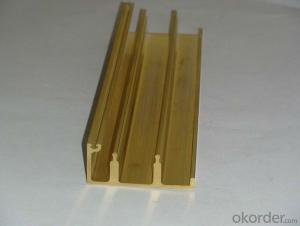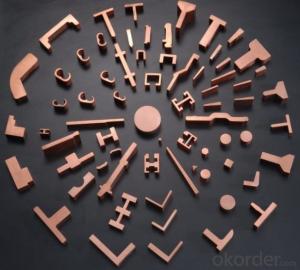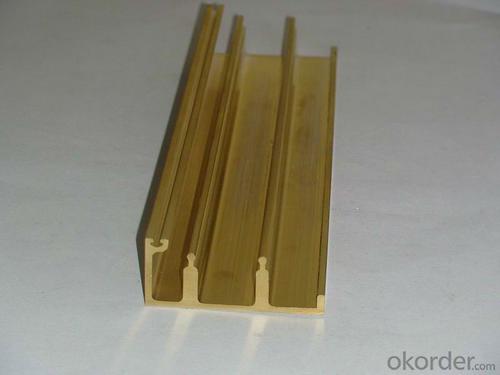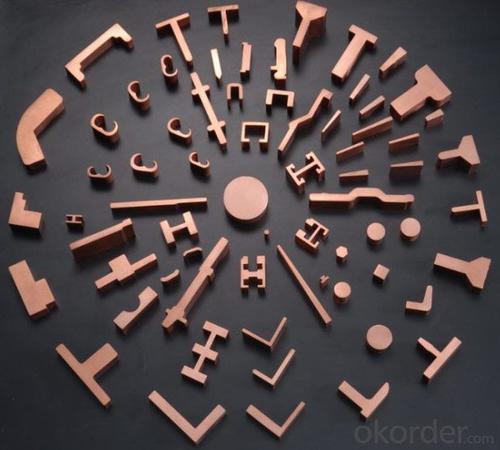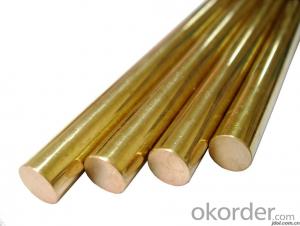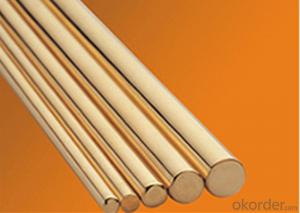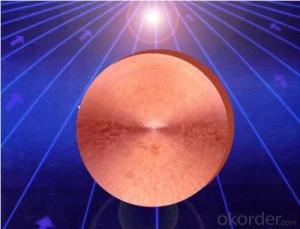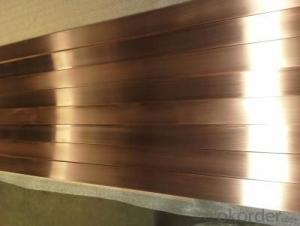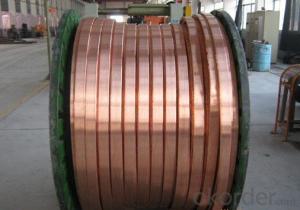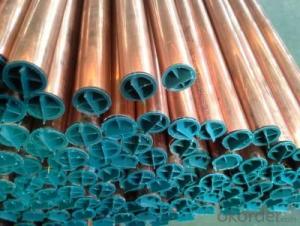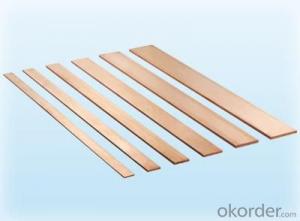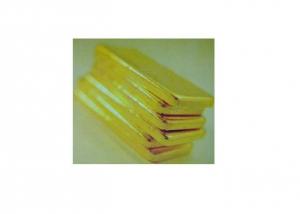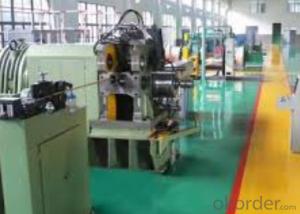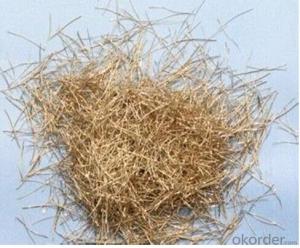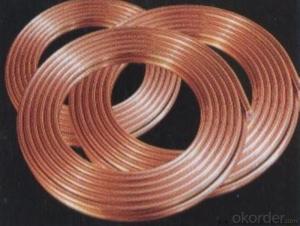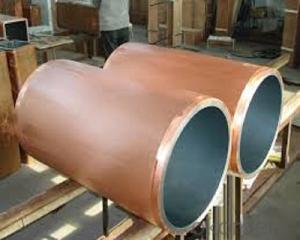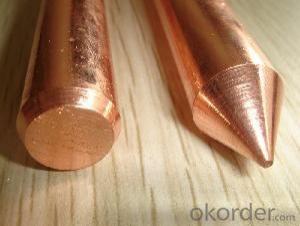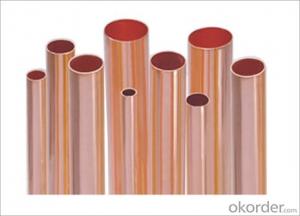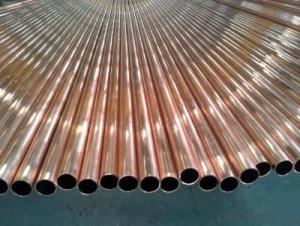High Density Copper Profile for Electrical Equipment
- Loading Port:
- Shanghai
- Payment Terms:
- TT OR LC
- Min Order Qty:
- 500 kg
- Supply Capability:
- 10000 kg/month
OKorder Service Pledge
OKorder Financial Service
You Might Also Like
Product: high density copper profile
Type Specifications: T2, TU1, TU2
Copper profile is processed copper with special shapes, and is mainly used in electric power equipment, railway sliding wire, and electronic leadframe, Feichi Copper & Aluminum owns several patents for high-density copper profile production, with the products of strong competitiveness and widely welcomed by the customers
High density copper profile Specifications
Type | Cu%(WT) | W%(WT) | RWMA | Density | E-conductivity(Min) | heat conduction | thermal expensivity | |
Class | (Min) | Hardness | ((W/mK)) | |||||
(Min) | ||||||||
CuW55 | 45±2 | Balance | 10 | 12.30g/cm3 | 49%IACS | 125HB | ~260 | ~11.7(10-6/K) |
CuW60 | 40±2 | Balance | 12.75g/cm3 | 47%IACS | 140HB | |||
CuW65 | 35±2 | Balance | 3.30g/cm3 | 44%IACS | 155HB | |||
CuW70 | 30±2 | Balance | 13.80g/cm3 | 42%IACS | 175HB | ~240 | ~9.7(10-6/K) | |
CuW75 | 25±2 | Balance | 11 | 14.50g/cm3 | 38%IACS | 195HB | 200~230 | 9.0~9.5 (10-6/K) |
CuW80 | 20±2 | Balance | 12 | 15.15g/cm3 | 34%IACS | 220HB | 190~210 | 8.0~8.5 (10-6/K) |
CuW85 | 15±2 | Balance | 15.90g/cm3 | 30%IACS | 240HB | 180~200 | 7.0~7.5(10-6/K) |
Copper profile is processed copper with special shapes, and is mainly used in electric power equipment, railway sliding wire, and electronic leadframe, we owns several patents for high-density copper profile production, with the products of strong competitiveness and widely welcomed by the customers
- Q: Hey guys. I was doing an experiment in which I made some copper acetate. I took copper sulfate and had it react with sodium hydroxide to make copper hydroxide and had that react with acetic acid to make copper acetate. Now I have a few questions. When I added the copper hydroxide to the acetic acid, the solution turned black.
- I guess you added the copper hydroxide to hot ethanoic acid...if so the black solid was probably copper(II) oxide. When making a salt by this method you should always add excess solid to ensure there is no remaining acid, then filter off the excess when reaction is complete. This ensures the salt formed will be in a simple aqueous solution. Allow this solution to deposit crystals by standing in a warm environment for a few days - then remove, rinse and dry the crystals. Copper ethanoate is not very soluble so it should crystallise out quite quickly. If you heat too rapidly you could get a mixture of the dihydrate and the anhydrous compound: they would have differing appearances. P.S. Copper(II) ethanoate has an interesting, 'dimeric', structure, a bit like that of chromium(II) ethanoate that used to feature at A-Level in the UK.
- Q: Outline the steps involved in preparing copper pipe for a straight tubular lapped brazed joint?
- When passing a truck move to the far side of the adjacent lane and full speed ahead, don't worry about the limit, get in front as soon as possible then slow down. Drive int the areas where car tires go,NOT the center of lane. That's where the cars drip oil and traction is really reduced, you can walk out in the street and look down and see the color difference. Use a clear visor ,not tinted, sun glasses for bright days. Even a light tint is dark at night and you WILL get caught out at night.
- Q: I am working on getting a contract through a copper plant and what I am supposed to be doing is cutting 40x20 inch copper discs, 40 inch circles 20 inches deep, I started today using a concrete saw, it took 2hours to simply make one cut and that destroyed an entire blade, what would be a more efficient option of doing this
- Copper is tough. Perhaps you can cast those gigantic copper slugs instead ot cutting them, then lathe and grind them to specs. That will take substantial time, but you won't be watchinng a saw burn up.
- Q: I've heard it's safe to treat puffers for ich with copper if you use half the recommended dosage, is this true? if so is it effective.
- No - copper's not really good for and can kill scaleless fish or invertebrates.
- Q: My son has some copper, does anyone know the going rate for copper by pound in illinois. Approximate?
- whats copper?
- Q: We are moving into a home that has a new copper top roof above a bay window... its nice a shiny copper now however I've seen some others turn black or green. Is there a protectant or cleanser to use to prevent that from happening?
- Copper will acquire a patina finish over a period of time. This is the nice blue-green color that you may have seen. Black is usually the result of algae, which should be properly cleaned. There are some products that may keep the copper shiny for a while. The problem is none of them will last for a significant amount of time. As the products wear, you will get an uneven patina that is not nice to look at or easy to correct. You would need to clean to bare copper an let the aging process start again. You are better to leave it alone and let nature take its course on this one. If you really want a shiny copper colored finish, the metal needs to be replaced with a painted product.
- Q: I have a small leak on a 3 copper drain pipe. The leak is on a collar. Is there anyway I can repair this leak without taking it apart and sweating the joint? Thanks for your help
- You can get special fittings that have an O ring seal to a smooth cut pipe. Cut the compression ring off, smooth the end of the pipe with a file, then use one of these O ring - type fittings. They need minimal run-out from the wall, but check your local building codes to see if they are legal for you. Or you could try epoxy paste as a sealer. It might leak again after a few years, but at least it won't blow off the pipe altogether.
- Q: what items at home and school are made from copper? also items from the street your school bag and stuff you use everyday???
- Things Made Of Copper
- Q: Are these outside DIA. (copper tube) conversions correct?Hi can anyone confirm if these outside diameters are correct for copper pipe?3/8” 12.7mm?” 15.8mm?”22.22mm Many Thanks!
- Depends on the type of copper tube, if those measurements are what you mic'd then you probably have ASTM B88 type K.
Send your message to us
High Density Copper Profile for Electrical Equipment
- Loading Port:
- Shanghai
- Payment Terms:
- TT OR LC
- Min Order Qty:
- 500 kg
- Supply Capability:
- 10000 kg/month
OKorder Service Pledge
OKorder Financial Service
Similar products
Hot products
Hot Searches
Related keywords
